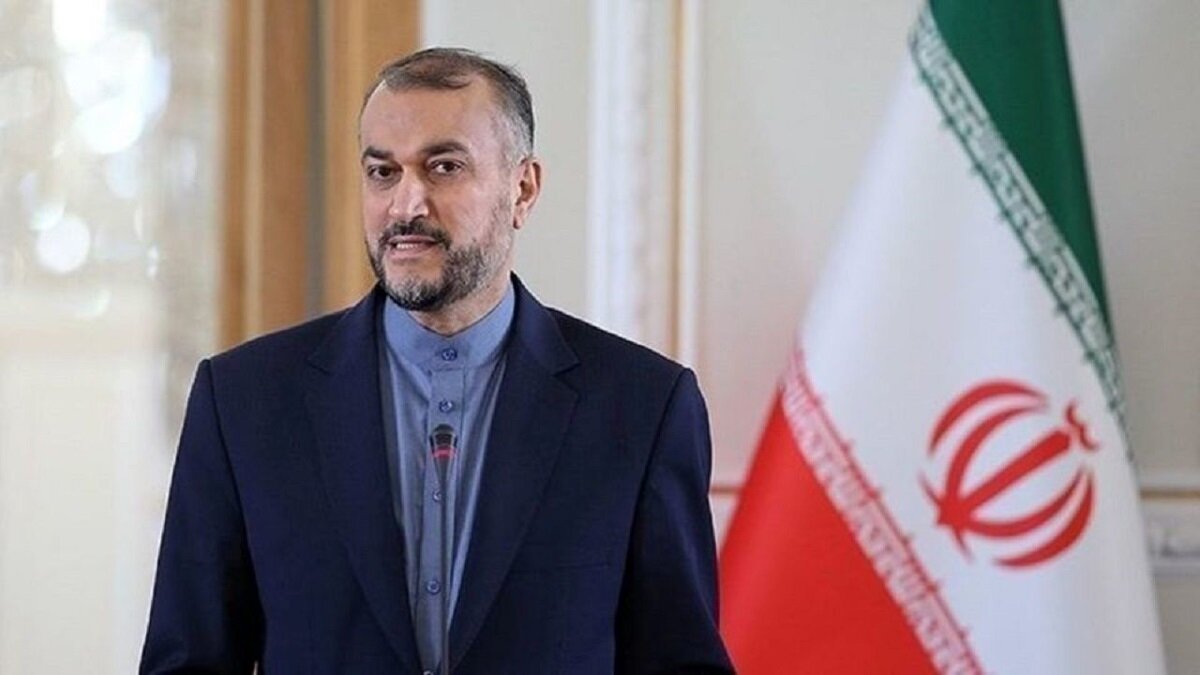The late diplomat dedicated his life to serving Iran and the region

TEHRAN – Throughout history, it is unusual to find a figure whose allies and detractors unanimously agree on their character.
Individuals are often perceived differently by different groups. However, Hossein Amir Abdollahian stands out as a man whose defining traits were consistently recognized. Anyone who came to know him can probably agree that Amir Abdollahian was hardworking, patient, and had a deep affection for both the Iranian nation and freedom fighters in the region.
An Israeli analyst appearing on the regime's TV following Amir Abdollahian's demise believed he worked as diligently as three ministers combined. Palestinians interviewing with journalists in the besieged Gaza Strip, spoke of how they felt like they had lost a dear friend and staunch supporter, and colleagues who had worked closely with him over the years admitted they had never encountered someone as hardworking and compassionate as him.
Life and career
Amir Abdollahian, born in Damaqan, Semnan province, in April 1964, dedicated his career to Iranian diplomacy. He began his journey by studying diplomatic relations at the Ministry of Foreign Affairs College, followed by a master's and doctorate in international relations from the University of Tehran. This academic foundation laid the groundwork for his extensive service to the Iranian government.
A series of prominent roles mark Amir Abdollahian's career. He served as deputy ambassador to Baghdad, gaining invaluable experience in regional diplomacy. He held key positions within the Ministry of Foreign Affairs, including deputy director of the Persian Gulf Department, deputy special assistant for Iraqi affairs, and member of the Iran-EU Nuclear Negotiations Committee. He played a crucial role in the Tehran-Baghdad-Washington negotiations on Iraq and headed the Special Iraq Desk at the ministry.
Amir Abdollahian's diplomatic expertise extended beyond the regional sphere. He served as Ambassador of Iran to Bahrain, further expanding his understanding of international relations. His commitment to diplomacy was evident in his appointment as director-general of the West Asia Department and deputy foreign minister for Arab and African Affairs.
Prior to assuming the highest office in Iranian diplomacy, Amir Abdollahian also served as special assistant to the Speaker of the Parliament and director-general of international affairs at the Islamic Consultative Assembly (Parliament).
On August 25, 2021, he was appointed Minister of Foreign Affairs, a role he held until his tragic passing on May 19, 2024.
Efforts and legacies
Amir Abdollahian was a man of action, not words. His efforts often unfolded in the shadows; their impact was felt only when their remarkable outcomes made headlines. His diplomacy was marked by quiet processes, yet yielded extraordinary results.
One of the late diplomat's most enduring legacies lies in the closer, more cordial ties he forged with regional countries. His tenure, though brief, bore remarkable fruit: a detente with Saudi Arabia and promising rapprochements with Egypt and Bahrain. While past administrations had boasted of ambitious plans, like the Hormuz peace initiative, to foster regional security and strong relationships, Amir Abdollahian shied away from such pronouncements. He avoided media fanfare, instead opting to only appear in front of the camera to deliver good news, rather than hopes and wishes.
Beyond strengthening ties in West Asia, Amir Abdollahian extended his diplomatic reach to other corners of the world. His efforts with European, African, and Asian nations secured two landmark memberships for modern Iran: entry into BRICS and the Shanghai Cooperation Organization.
Meanwhile contrary to predictions from his Iranian critics, Amir Abdollahian did not isolate Iran from the West. He maintained dialogue with Western nations even during turbulent times, ensuring that communication channels remained open regardless of domestic or international developments.
While his accomplishments in securing deals and agreements are notable, future historians may well deem Amir Abdollahian's most significant contribution to actually be the crises he prevented. His efforts played a crucial role in keeping war at bay in a volatile region, particularly amidst Israel's relentless attacks on Gaza. The U.S. State Department's condolences, extended to both him and President Raisi, speak volumes about his role in containing violence and preventing regional escalation.
From October 7 until his passing, Amir Abdollahian embarked on numerous regional tours. He not only met with foreign officials but also engaged with resistance forces, whom he held in high regard. He facilitated their strategic moves and amplified their voices on the diplomatic stage, demonstrating a deep understanding of the realities on the ground. He never separated diplomacy from the battlefield, and his efforts kept the region safe, at times when a full-scale war was just around the corner due to the Israeli regime's savage crimes.

No comments:
Post a Comment